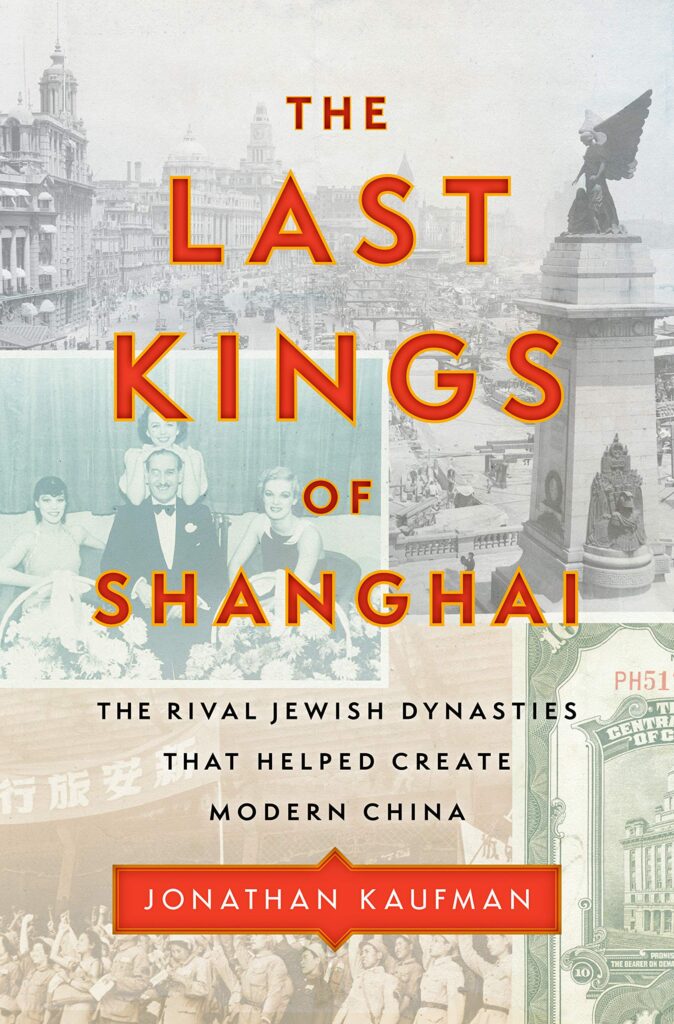
Review of The Last Kings of Shanghai: The Rival Jewish Dynasties that Helped Create Modern China by Jonathan Kaufman. Viking, 2020.
Whatever else may give them cause for dispute, China and the world will always have the majesty of Shanghai to agree upon. Two families, the Sassoons and Kadoories, would be as instrumental as any in delivering Shanghai’s destiny “as the permanent emporium of trade between [China] and all nations of the world,” that a colonial newspaper once foresaw. From a role in the founding of banking giant HSBC to building the legendary Cathay Hotel on the Bund, their legacy is palpable.
So too is the sense of moral ambiguity that pervades this history. While in some ways progressive for their era towards Chinese, the families were complicit in the ravages of the opium trade. At the same time that the two clans kept the Chinese at the periphery of their world, the British elite kept the families (if not their largesse) at a remove from theirs on account of their faith. The families’ role in saving thousands of Jews who sought refuge from Nazi persecution would be among their greatest legacy.
For all their astute navigation of markets and day-to-day politics, their failure to anticipate the Communists’ triumph would send the Kadoories to Hong Kong, where they would assume a quieter, but no less influential role in that city, and the Sassoons further afield. As China ultimately reopened, they too would find in the Communists a counterparty with whom they could do business.
After Tiananmen, Lawrence Kadoorie would defend Deng Xiaoping by saying “too much democracy is not the best thing for this area of the world.” It was of accord with his earlier defense of Hong Kong’s colonial government as “far better than Western democracy.” His son Michael’s endorsement of the new national security law earlier this year was more restrained; from London, James Sassoon, a member of the House of Lords, was less reticent in rejecting calls for his country to get tougher on China.
Sassoon would not be the first to confuse the national with his personal interest. Years earlier, as a UK Treasury official, he remarked to then Chinese finance minister Lou Jiwei, “It is a shame that China has not implemented the policy that many countries in Eastern Europe adopted where they have allowed former owners to come back and reclaim their properties. If China did that, our family would be much better off.”